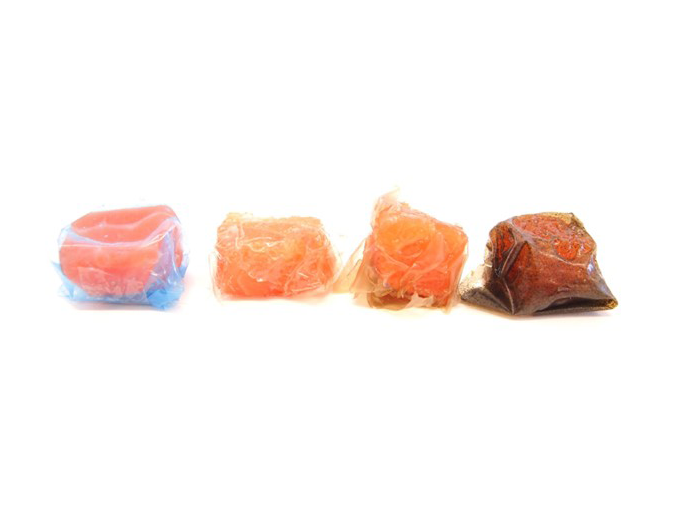
The most common technique in the world of food packaging is single-use plastic films. With a little help from the EU, the SeaFilm food packaging project aims to create a substitute for single-use plastic film in conserving frozen fish. As the name indicates, the new packaging film comes from the sea and is based on bioactive seaweed extracts and edible algae. It helps to conserve frozen seafood for longer while maintaining the quality. A promising project in line with the EU objectives of fighting plastic pollution, reducing food waste, and boosting the algae sector.
What if we ate our food wrappings?
Anyone who’s removed the plastic wrapping from a long-forgotten, dehydrated frozen fish fillet knows the feeling. Too much plastic and too little poorly conserved fish. This was what made the researchers from the Polytechnic University of Leiria in Portugal think about different solutions. Coupled with the problems arising from plastic pollution and restrictions on single-use plastics, the concept of an edible biofilm for frozen fish was born.
The SeaFilm project is looking to provide the industry with a new algae-based edible solution to replace plastic films whilst increasing product shelf life through the incorporation of bioactive seaweed extracts. After defrosting the frozen fish, the biodegradable film can either be disposed of or simply eaten along with the fish. In the latter case, the edible film could even include seasonings to create a meal that is tasty, convenient and easy to cook.
Prolonging shelf life and reducing single-use plastics
SeaFilm will offer an alternative to plastic with a novel material that helps to differentiate seafood products, reduce food waste and cut the amount of single-use plastics used in the production of frozen seafood.
With the SeaFilm project we replaced synthetic packaging materials for frozen fish with a marine macroalgae-based biomaterial, which will contribute to the reduction of single-use plastic and to the reduction of food waste,
say researchers from the Polytechnic University of Leiria.
The material will decrease the environmental impact of seafood freezing whilst actively extending shelf life through the incorporation of extracts from the seaweed Grateloupia turuturu. The film is validated for shelf life extension in frozen salmon, significantly reducing freezer burn. Recent results indicate that it might also extend the shelf life of seafood after defrosting, by delaying microbial growth. It contributes towards a sustainable final product that is more appealing to look at than seafood wrapped in synthetic plastic film.
For most species tested, the researchers observed a delay in the development of microorganisms after thawing. The new material consists of an alginate-based biofilm that incorporates the seaweed extract. When used as a wrapper, it helps to conserve frozen seafood for longer while maintaining the quality.
The innovative solution was supported by the European Maritime and Fisheries Fund. The industry is very interested in the results of the project and has asked the team to produce biofilms for other species such as cod and hake.
More information
Commission Communication “Towards a strong and sustainable EU algae sector”
SeaFilm: Development of edible film for sustainable fish freezing
Details
- Publication date
- 26 January 2023
- Author
- Directorate-General for Maritime Affairs and Fisheries




